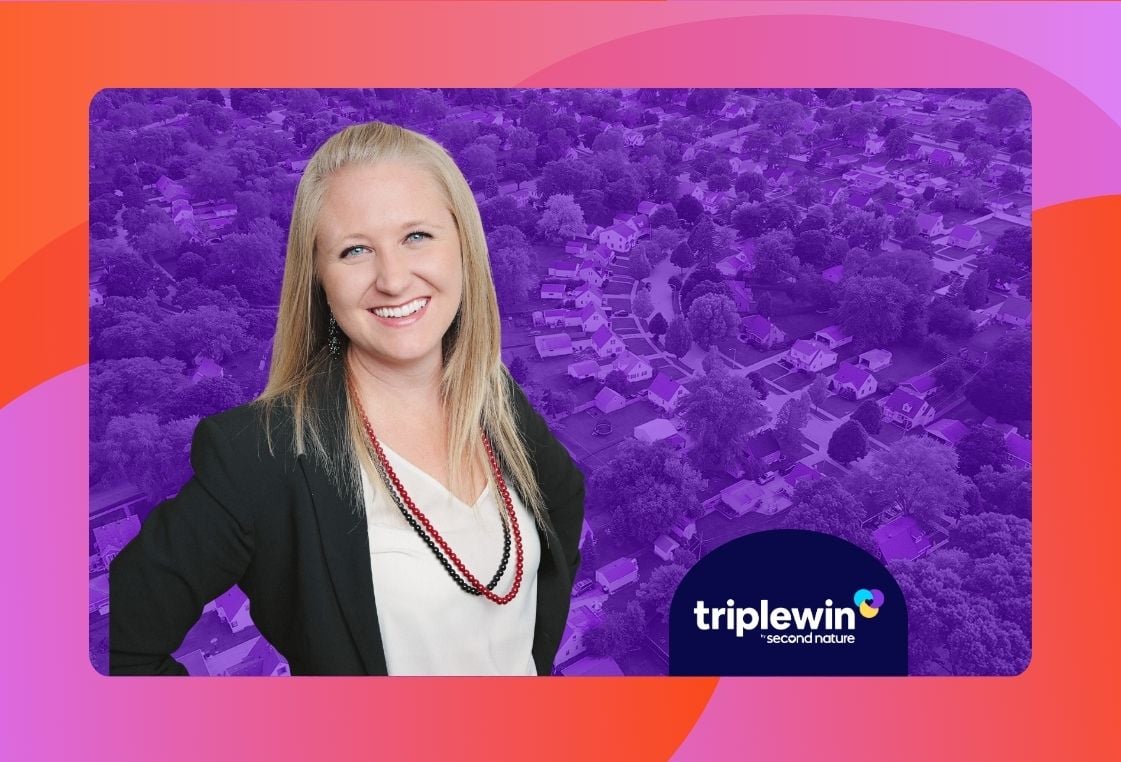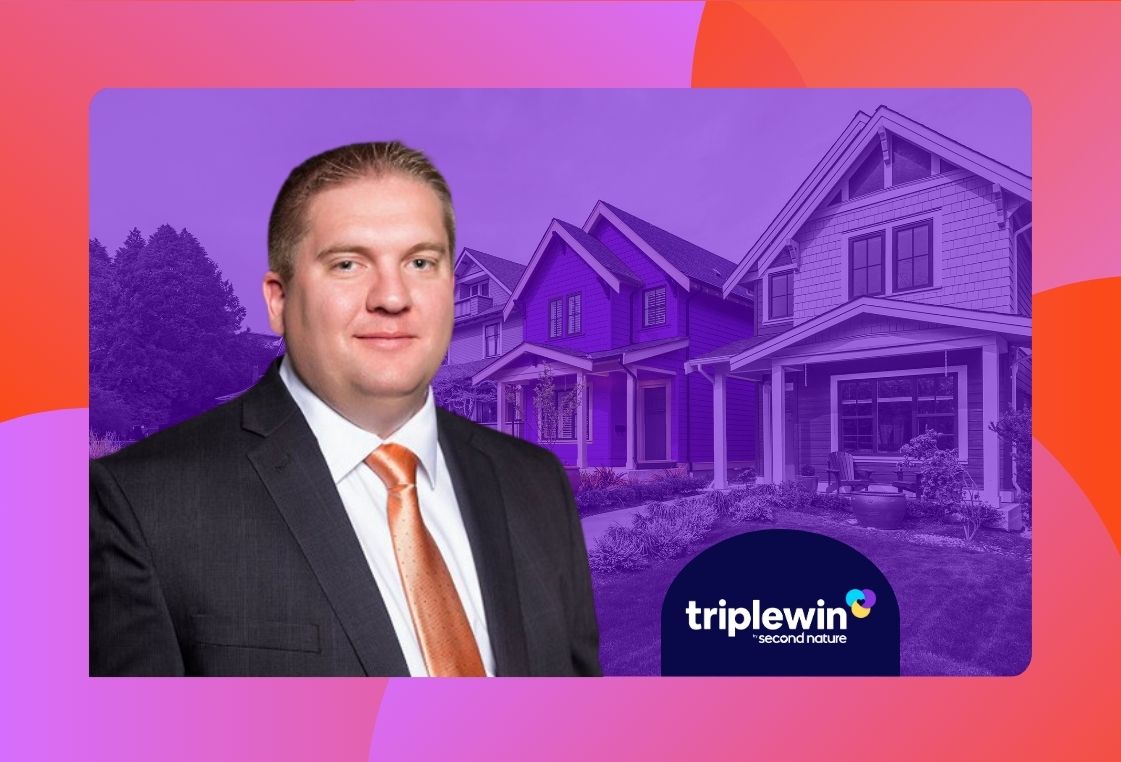What we'll cover
Keep up with the trends in Single-Family Property Management
Understand your ideal investors in single-family property management
Make sure your rental application requirements are clear
Simplify rent collection and accounting processes
Prevent vacancies with effective resident communication and engagement activities
Automate single-family property management workflows
Invest in regular rental inspections
Create a referral program to increase your portfolio
Find new investment properties and pitch them to your current clients
Invest in marketing activities for short vacancy cycles
Increase revenue from your SFR property management business with Second Nature
Navigating the world of Single-Family Property Management requires a blend of industry know-how, proactive strategies, and a keen understanding of both investors and residents.
What is a single-family property management business? At its core, the business revolves around managing standalone properties for individual property investors, ensuring the rental property is maintained, tenanted, and profitable.
But how do you optimize for success in this space? In this post, we'll uncover 10 pivotal strategies to elevate your single-family property management business, from staying updated on industry trends to streamlining your operations for maximum efficiency.
Related: Best Property Management Podcasts

1. Keep up with the trends in Single-Family Property Management
The dynamic landscape of single-family property management is constantly innovating and growing in response to various economic, technological, and societal factors. Property managers in the single-family space (vs. multifamily properties or even commercial real estate) also tend to be entrepreneurial, innovative, and adaptive. It’s what we love about this community! But some "trends" have staying power, and the key to long-term success is identifying those and adapting your services to the modern consumer.
Over the past decade or so, the way we do commerce and services has been upended by technology and the convenience economy. The same is true in property management.
In the words of Jonathan Cook at Revolution Rental Management: “I think ten years ago, property managers were only concerned with collecting rent and keeping tenants from doing damage to properties. It was a much more adversarial relationship than it is today. Today, the best PMs know that resident experience is vital to minimizing vacancy and creating a resident that strives to be a higher quality tenant.”
So, let’s look at several trends that have emerged that are shaping the industry’s direction.
- The Convenience Economy: Sometimes we call this "the Amazon effect." Consumers and residents alike are looking for the easy button. They're looking for everything from online rental listings they can scroll from their couch to online rent payment services that make paying as easy as the click of a button.
- Technological Advancements: Today, property managers are leveraging technology more than ever. From smart home systems that enhance resident experience to advanced, AI property management software that streamlines operations, staying abreast with technological trends is crucial.
The key to staying on top of these transformations is to ask the right questions. Pay attention to general business trends. What are consumers demanding? What is new in technology that you could adapt to your business strategy? Running a property management business is just that: a business endeavor. Keep your eyes sharp on trends in commerce and get involved in the conversation of how that affects good property management.
2. Understand your ideal investors in single-family property management
When diving into professional property management, just like any other business, it's essential to identify your ideal customer profile (ICP) early on. You will get so much further by "niche-ing down" than spreading your company too thin.
What kind of property and client are you ideally set up for or prepared to work with? Once you define your target audience, you can then be ruthless in saying no to anyone who falls outside that definition.
Here are a few ways to explore the various dimensions of property investor clients:
- Level of Experience: Property investors are not all created equal. Individuals get into property ownership for different reasons. You can see experiences ranging from an accidental landlord who never intended to be an investor all the way to a sophisticated or institutional investor, and every shade of the spectrum in between. It's very difficult to build a business that serves all customers across all levels of sophistication. They'll have different needs for how much education they need, how they want you to handle things, and how they want pricing to work.
- Property Types: You should also define what type of property you want to manage, which will help you assess if a new investor is a fit or not. We're assuming since you're reading this that you're interested in single-family rentals. But within that category, there is still so much variation. Are you looking to manage luxury homes with higher rent, lower demand, and longer vacancies? Are you more interested in workforce housing with more demand and lower rents? Or maybe you're a specialist in Section 8 housing. Whether Class A, B, or C housing, it's very hard to specialize in all property types. Sure, all SFR homes are unique, but it's key to identify the general characteristics of the homes you'd like to manage (or already excel in managing). Then, you and your team are dealing with more consistent situations.
- Compatibility Fit: You also need to make sure the investor as an investor fits with your approach. And we don't just mean personalities. Have a list of questions that help define what type of investor you can work with. In his podcast Owner Occupied, Peter Lohmann (co-founder & CEO of RL Property Management) talks to Marc Cunningham (President and Owner of Grace Property Management & Real Estate) about their lists, which include questions like: 1) Is the investor financially stable? 2) Is the investor emotionally stable? 3) Are they realistic in expectations? 4) Are they willing to trust us as the expert? Cunningham says his company can manage any property if the owner is right. Define what's important to you and stick to your guns.
As Lohmann says in the podcast, "The easiest way to deal with a horrible owner client is to never onboard them in the first place." The goal is to filter out the people who are not a fit before you get into a contract with them.
"When you're first starting out in this business, you chase everything," Cunningham says. "But as you grow and become successful, you need to slide that bar on your 'yes' and 'no' and start saying no."
In short, nailing the definition of what type of investor and property you want to work with will help you find the right clients and ultimately succeed with them. You're not saying yes to every person who is looking for property management; you're looking for a specific type of customer.
3. Make sure your rental application requirements are clear
Are you getting applicants who don't end up being a fit for your properties? It's possible the requirements are not clear on the listing or application. Is your advertising penetrating where it's going to reach qualified residents? Do potential applicants know what credit score they need, income requirements, and more?
Of course, how you advertise and where varies widely by the market in your area. Some property managers say they would never use Craigslist, and others swear by it. Understand the market in your area and make it clear from your listings what is required to be accepted as a renter. You'll save everyone frustration with transparency and clarity.
4. Simplify rent collection and accounting processes
You know the old saying, "Time is money.” It's particularly true in the rental property management game. Think about it: Every hour you spend chasing down a rent check or struggling with complex accounting software is an hour taken away from growing your business, networking, or improving other operational aspects.
Simplifying your rent collection means introducing online payments, setting up auto-pay options, and even mobile payment methods. Modern residents love the ease of digital transactions. Making their lives easier often equates to faster, on-time payments and a heightened sense of trust.
One way to simplify rent collection is to incentivize on-time rent payments. Second Nature’s Resident Benefits Package does just that by offering credit reporting and rental rewards to ensure that residents receive value for paying on time. As the property manager, it’s work off your plate!
It's also a good idea to standardize your rent collection and use tools to support your team. New tech services like Colleen.ai and EliseAI can fully automate your rent collection communications.
As for accounting, streamlined property management software solutions can auto-generate reports, offer real-time financial insights, and make tax season a breeze. By embracing these upgrades, you’re not just benefiting internally by saving time and resources – you’re showing current and potential residents that you value efficiency and are in tune with modern conveniences.
The result? Higher resident satisfaction, a more enticing pitch to potential property investors, and an overall smoother business operation poised for growth.

5. Prevent vacancies with effective resident communication and engagement activities
Remember when you first fell in love with your favorite coffee shop or that little bookstore around the corner? It wasn't just about the coffee or the books—it was the overall experience, the atmosphere, and the feeling of being recognized and valued.
The same principle applies to a residential property management company.
Resident communication isn't just about sending rent reminders or maintenance updates. It's about cultivating a relationship. Providing resident benefits, gifts, support services, and timely communication go a long way to showing residents you care about their home.
Engagement programs like loyalty rewards or recognizing special occasions can also be game-changers.
Looking for more inspiration on resident retention? Dive deeper into our resident retention ideas article to explore various strategies that will help keep your properties filled and your community thriving.
6. Automate single-family property management workflows
Ever find yourself drowning in spreadsheets, buried under a to-do list a mile long, or juggling multiple software platforms? Surely we all have!
The solution? Breathe easier with property management automation. The beauty of running a full-service property management firm in the 2020s is that there's likely a tool or system for nearly every task in property management, from rent collection to resident communication.
Our best single family property management software article is a treasure trove of tools and platforms designed specifically for property managers. By implementing these solutions, you can automate repetitive tasks, reduce human errors, and free up time to focus on more value-driven aspects of your business.
Think about it: a streamlined application and screening process, automated rent reminders, and digital maintenance requests—all working like clockwork without your constant intervention.
Beyond the tools themselves, consider the integration possibilities. When your property management company software talks seamlessly with your accounting system or marketing platform, the result is a cohesive and efficient workflow. Need more insights into the power of automation? Dive into our in-depth automation-related articles to discover how you can revolutionize your day-to-day operations.
7. Invest in regular rental inspections
Investing in regular rental property inspections isn't just about ensuring your property is in good shape—it's also a strategic move to bolster the relationship with your residents and maintain the value of your client’s investment.
Here's the deal: Consistent inspections offer a proactive approach to property maintenance. They can catch small maintenance issues before they balloon into costly repairs. Got a minor leak? Catch it early, and you're saving both money and potential damage to a resident's belongings.
But it's not all about damage control. Regular check-ins also send a clear message to your residents: you care about their well-being and the condition of the property they call home. It's an opportunity to foster open communication, showing residents that their feedback is valued.
Moreover, well-maintained properties tend to attract and retain quality residents. Those who know their property manager is on top of things will likely stay longer and treat the property with respect. Plus, when it's time to find a new resident, you've got a spotless track record of upkeep to show off.
In short, consider inspections as a small investment now that can yield big returns in resident satisfaction, property value, and overall peace of mind.
8. Create a referral program to increase your portfolio
Word of mouth? It's powerful. And in the property management game, it's gold. Imagine this: your current clients, satisfied with your stellar services, singing your praises to friends, family, and colleagues. Now, what if you could incentivize that process? Enter the referral program.
Happy real estate investors are your best brand ambassadors. They've experienced firsthand the quality of your management, and their endorsement carries weight. So, why not reward them for bringing in new business? A referral program can do just that.
Start by offering incentives. For your investor clients, perhaps it's a discounted management fee for a month. The point is to offer something tangible that'll get folks talking and referring.
But there's more to it than just the direct business benefits. A referral program demonstrates that you value the relationships you've built. It tells your clients that their trust and loyalty don't go unnoticed.
Lastly, an added bonus: with every successful referral, you not only grow your portfolio but also create a network of investors who are invested in your success. It's a win-win, driving growth for your business while strengthening the bond with your current clientele.
9. Find new investment properties and pitch them to your current clients
You're already managing a portfolio of properties for your investors, ensuring they get solid returns and have few hassles. But here's the question: What if you could amplify those returns for them and simultaneously grow your business?
Actively seeking out new investment properties is more than just scouting real estate; it's an art of opportunity. By identifying lucrative properties that align with your investors' strategies, you're essentially providing them with golden opportunities on a platter.
And guess who they'll want managing these new assets? That's right, you.
When you present these potential investments to your current clients, it accomplishes a few things. Firstly, it reinforces your role as a trusted partner in their financial journey, showing them that you're proactive and always on the lookout for ways to amplify their wealth and boost their cash flow. It's not just about maintaining what they have; it's about growing it.
Secondly, every new property they acquire based on your pitch naturally expands your management portfolio. This approach helps scale your business, fostering client trust and loyalty along the way.
Remember, in the property management world, being static isn't an option. By constantly seeking growth opportunities for your clients, you're also carving out a pathway for your own business's expansion.
10. Invest in marketing activities for short vacancy cycles
Imagine a prime property in a stellar location, decked out with all the bells and whistles...sitting vacant. The eerie silence echoing in those empty halls isn't just the sound of missed opportunities – it's also the sound of revenue trickling away.
Maybe that was a little dramatic. But the real estate game is as much about visibility and appeal as it is about bricks and mortar. The quicker you can get a property off the market and into the hands of a reliable resident, the better for everyone involved. This is where strategic marketing steps in.
Investing in a robust property management marketing strategy does more than just showcase a property; it strategically positions it in front of the right eyes. With targeted campaigns, engaging visuals, and compelling copy, you can ensure your property doesn’t get lost in the sea of listings. Use social media, virtual tours, and local advertising to create a buzz.
Moreover, effective marketing helps paint a lifestyle. When potential residents can visualize themselves in a space, they're more likely to take the leap. By consistently shortening vacancy cycles through effective marketing, you not only ensure a steady revenue stream but also enhance your reputation as a go-to property manager who gets results.
In essence, marketing isn't an expense; it's a pivotal investment. It's the bridge that connects empty properties with eager residents, ensuring your business always stays on the move.
Increase revenue from your SFR property management business with Second Nature
Optimizing your single-family property management business is not a one-size-fits-all solution. From engaging with the right investors to fine-tuning marketing endeavors, the path to success is paved with multifaceted, dynamic approaches.
But the key to it all is creating a better experience: for residents, investors, and your property management team. That’s why, at Second Nature, we’ve built a Resident Benefits Package that supports SFR property management businesses. Each benefit is designed to meet resident needs and investor priorities while taking work off your team’s plate.
In the dynamic world of SFR property management, adaptability and efficiency are kings. With Second Nature by your side, you’re not just keeping pace with the industry; you’re setting the benchmark. So, as you work towards crafting a business that stands tall and resonates in the market, remember: Your success is our second nature.




